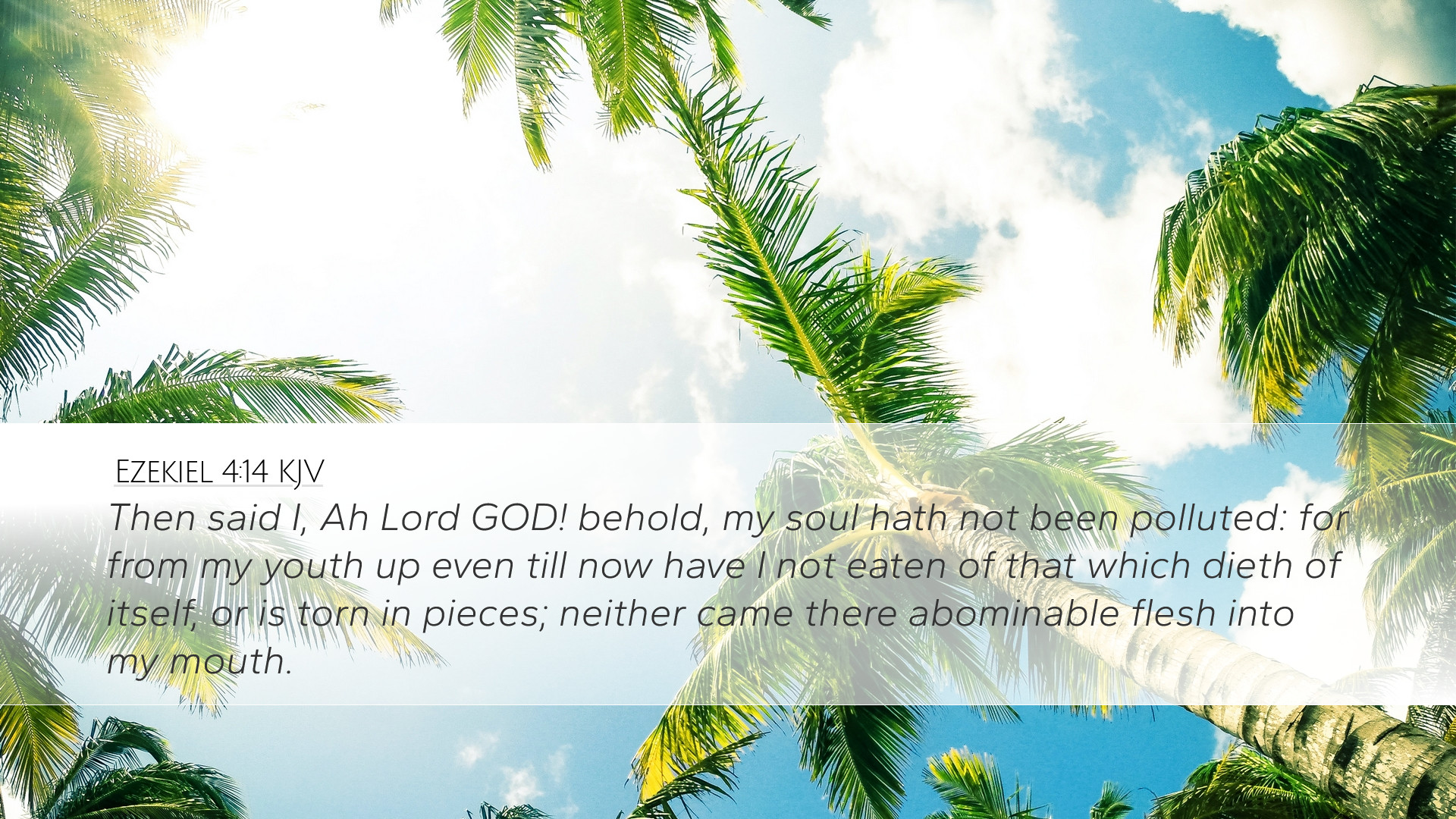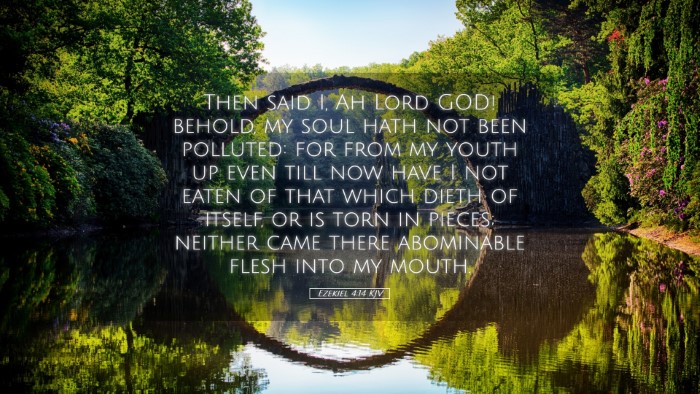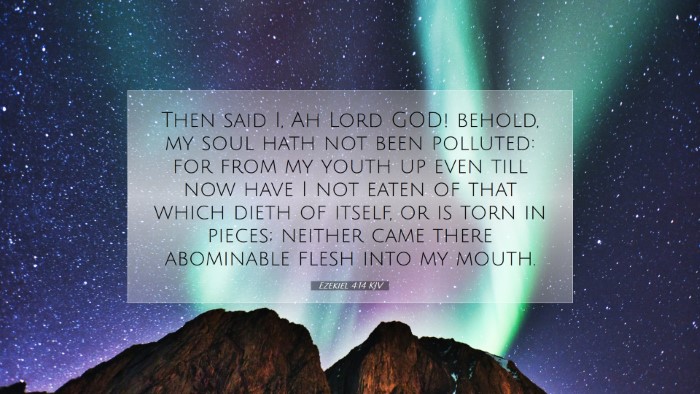Commentary on Ezekiel 4:14
Ezekiel 4:14 (ESV): "Then I said, 'Ah, Lord God! Behold, I have never defiled myself. From my youth up till now I have never eaten what died of itself, or was torn by beasts; nor has any unclean flesh come into my mouth.'
Introduction
In Ezekiel 4:14, we find a profound moment of personal reflection from the prophet Ezekiel as he grapples with the commands given to him by God. This verse not only highlights Ezekiel's commitment to ceremonial purity but also signals his reluctance to partake in the actions God has instructed him to demonstrate. Drawing insights from esteemed public domain commentaries, we can extract various theological implications, pastoral applications, and inspirational lessons from this pivotal scripture.
Ezekiel’s Personal Integrity
According to Matthew Henry, Ezekiel’s protest is an expression of his personal integrity. He emphasizes that Ezekiel had always adhered to the dietary laws outlined in the Mosaic Law. This highlights the character of a prophet who strives to maintain purity despite the distressing messages he is called to convey.
- Contextual Background: Ezekiel was among those taken captive to Babylon, and his prophetic ministry occurred during a time of national tragedy for Israel.
- Ceremonial Laws: Ezekiel's adherence to these laws illustrates the deep-rooted nature of Jewish identity and holiness in the face of impending judgment.
Theological Implications
Albert Barnes offers valuable theological insights regarding the significance of the dietary laws. He notes that these laws were not merely about physical health but were deeply intertwined with the covenantal relationship between God and Israel. The call to remain separate and holy reflects God’s desire for His people to embody obedience and faithfulness.
Moreover, Barnes indicates that Ezekiel's struggle represents the tension between divine command and human understanding. It serves as a reminder to contemporary believers about the difficulties that may arise when God calls them to act in ways that challenge their personal convictions.
The Role of Prophetic Obedience
Adam Clarke emphasizes the weight of prophetic duty. He suggests that truly prophetic figures often face trials that test their faith and commitment to God’s commands. Ezekiel’s hesitance is a relatable human response, showing that even the most devoted servants can feel overwhelmed by the demands of their calling.
- Prophets as Leaders: They are not exempt from struggles; instead, they embody the vulnerability of faith in action.
- God’s Understanding: God responds lovingly to Ezekiel’s concern, further illustrating His compassion for His servants.
Symbolism of Food and Spiritual Reality
The food that Ezekiel refers to symbolizes more than just physical sustenance; it represents spiritual nourishment and the purity required to represent God’s message effectively. Matthew Henry underlines that partaking of unclean food serves as a metaphor for engaging in unholy acts that compromise one's relationship with God.
This deep symbolism carries forward the message of the New Testament, where the Lord Jesus Christ fulfills and transcends these dietary laws, calling believers to a higher standard of holiness and purity that emanates from the heart.
Pastoral Applications
For modern pastors and church leaders, Ezekiel's reluctance offers profound pastoral applications:
- Emotional Honesty: It's vital to acknowledge the emotional and spiritual struggles that accompany obedience to God. Encouraging congregants to express their challenges can foster a supportive church community.
- Integrity in Leadership: Just as Ezekiel maintained his integrity, church leaders are called to uphold moral standards that reflect their faith, ultimately influencing their congregations positively.
- Responding to Divine Commands: Pastors may face directives from God that challenge their understanding or comfort levels. Surrounding oneself with prayerful discernment is crucial.
Conclusion
Ezekiel 4:14 serves as a critical reminder of the complexity of faith, obedience, and holiness. Drawing from the insights of Matthews Henry, Albert Barnes, and Adam Clarke, we see a multifaceted understanding of how personal integrity, prophetic duty, and spiritual symbolism weave together in this passage.
As scholars and practitioners of the faith reflect on the struggles of the prophet Ezekiel, they are invited to assess their commitment to God's directives, encouraging a richer and more profound engagement with scripture and their personal walks with God.


